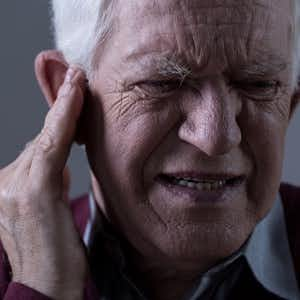
Tinnitus, or ringing in the ears, can be a maddening problem. No one else can see or hear what is going on for the sufferer, so they get too little sympathy. Even so, the ringing, hissing, chirping or squealing can keep a person awake at night and drive him (or her) a little crazy during the day. Unfortunately, ringing in the ears is a side effect of many popular medications.
Medicines That Can Cause Ringing in the Ears:
Q. I have been taking arthritis-strength acetaminophen (Tylenol) for my joint pain and recently noticed that my tinnitus is more intense. Is this a possible side effect of the pain reliever?
A. Frequent use of over-the-counter pain relievers such as acetaminophen (APAP) or ibuprofen can cause hearing loss (Curhan et al, American Journal of Epidemiology, September 15, 2012). One study determined that acetaminophen can damage hair cells crucial for normal hearing (Kalinec et al, Hearing Research, July, 2014).
We have not found studies linking normal use of acetaminophen to ringing in the ears (tinnitus). People who abuse narcotic combinations containing APAP may develop tinnitus and hearing loss within a few months, though. When people begin to lose their hearing due to any cause, they may develop tinnitus.
Treating Joint Pain Without Intensifying Tinnitus:
Because most other OTC pain relievers can also trigger tinnitus, you may need nondrug approaches for inflammation relief. The research cited above in the American Journal of Epidemiology shows that aspirin does not lead to hearing loss, but it certainly can cause ringing in the ears. As a result, this popular anti-inflammatory drug won’t be a suitable substitute for your high-dose acetaminophen.
Our Guide to Alternatives for Arthritis offers several natural ways to ease joint pain. This online resource discusses medications, including topical NSAIDs such as Voltaren Gel that may be a little less like to trigger tinnitus. It also provides details on nondrug approaches from gin-soaked raisins, Certo and grape juice and Knox gelatin to Ayurvedic herbs such as ashwagandha (Withania somnifera), boswellia (Boswellia serrata), curcumin (Curcuma longa) and ginger (Zingiber officinale).

